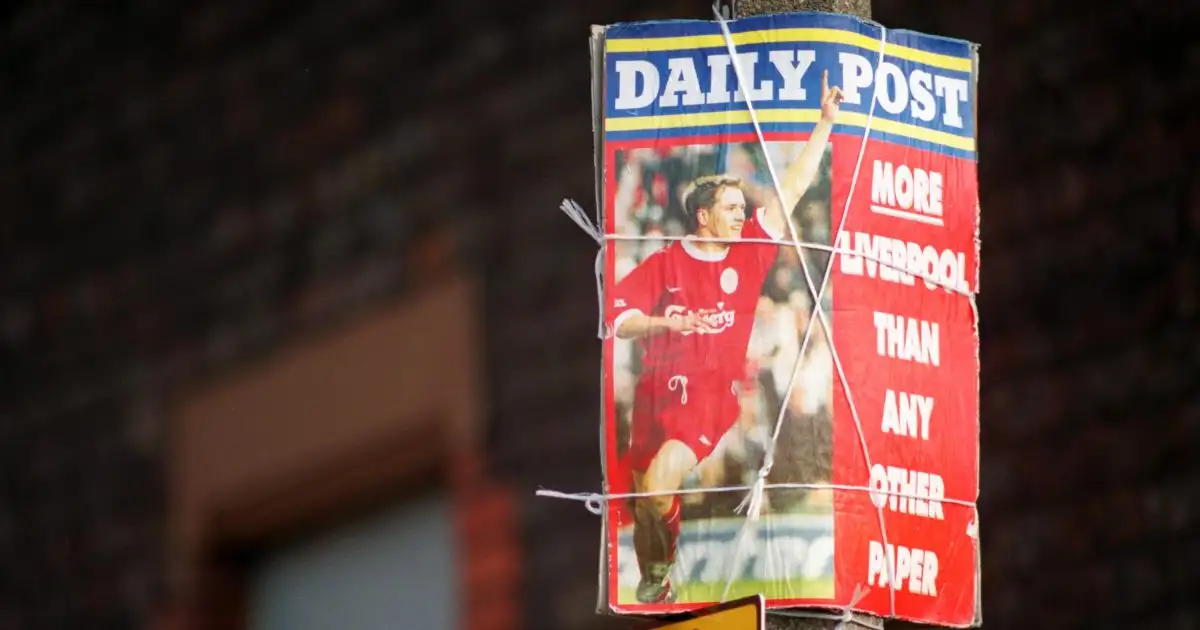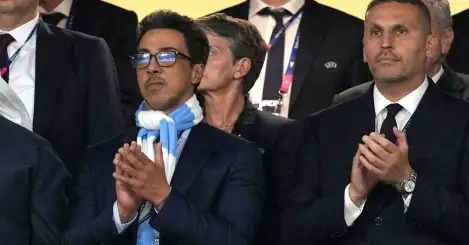Everything is not awesome; football needs objective media

There are people who believe digital screens are the only pathway to the future, while others point to record sales of actual books and the modest resurgence of vinyl albums as proof of the viability of the non-digital.
There are magazines closing, but others such as Rock Candy (who I also work for) have found a relatively niche audience and give them what they want in printed form, as well as a digital version.
There is definitely a market for something you can hold in your hand, and when it came to football, that always included local newspapers. But now those papers are under threat; many have closed, many are being streamlined to be regional more than local, all are being squeezed from every direction. This might not seem like a big deal. Who cares about the press, right?
Others have survived, but have had to turn the paper into little more than a promotional tool for the football club. This especially applies to the really big clubs, where there is often a commercial relationship between the publishers of the local paper and the football club.
The Liverpool Echo, for example, is owned by Reach and they publish a Liverpool magazine, The Echo in turn has become little more than an ‘aren’t Liverpool brilliant?’ organ. Where once they would have been an independent voice of authority, now they are an uncritical friend, selling into a pro-Liverpool FC audience who only want ‘news’ about how great the Reds are. Reach also owns the Manchester Evening News and publishes a Manchester United magazine. Same situation there. There’s a clear conflict of interest.
MEDIAWATCH: Will Leeds sack Bielsa and appoint Lampard?
It’s a trend elsewhere. The New European and The National have done well selling into a very specific anti-Brexit and pro-independence audience. They are not designed to offer a broad range of views, they are there for people who have already made up their mind, like people have about their football club.
All big clubs are now protective of their content. They don’t want to give away new signings or interviews with players to local press for free, they want to broadcast them on their website and charge punters a membership fee for the pleasure, often scheduling announcements to be convenient for fans in Singapore or America.
With clubs of Spurs now having state-of-the-art TV studios in the ground, such organisations are evolving into stand-alone multi-media companies, gearing up to be their own exclusive broadcasters when the next inevitable iteration of the European Super League comes around, so they can stream their own games directly to the public.
This is fair enough in one way. You can totally see the logic of controlling your content from the big club perspective. They have outgrown the local press and have little or no use for it other than as a promotional tool. Similarly, the paper has to drum up business and survive somehow.
However, there is an overarching problem to do with authority and truth. When there is no-one whose words are commonly held to have authority, where do we go for truth? We need critical voices we can believe, not some self-appointed ITK on Insta or Twitter who pretends to be an authority. And not the local fan sites that are given club propaganda to disseminate, either. This is how we have ended up with facts and alternative facts. Objective truth has become merely a subjective commodity to trade or change for money. The club is of course innately biased – even though they have convinced a more gullible section of supporters they are actually the voice of reason – and wants its own stories out there in the way they want them told.
This isn’t a plea to go back to the 1960s when every small town had its own paper, a morning and evening title, as well as a pink or green on Saturday, as nice as that might be in theory. It is more a plea for us to fully grasp what is really happening and not be suckered into it.
Some clubs are asking for control over copy, to vet what is written, others are now asking newspapers for an access fee. Rangers apparently want £25,000 from newspapers to speak to the management team and the players, and even more for an exclusive.
Fine, you might think, f*ck the press, they’ve had an over-inflated sense of themselves for too long. And you may be right, but where do we go for objective truth now?
Too often, local papers are forced to kowtow to the club’s they report on because of the selling power of football. Good to see the Stoke Sentinel backing the position of Port Vale fans. pic.twitter.com/kapVvcB89o
— STAND (@STANDfanzine) March 25, 2019
The BBC’s sports reporters like Dan Roan do a great job in ever more difficult circumstances in trying to get to the truth, and further down the pyramid, relatively small clubs such as Carlisle United aren’t likely to turn into a big media hub any time soon so there, the local paper is still an important interface with the public. Further up, it is changing markedly.
Clubs tend to engender more goodwill and affection than the local newspaper or its reporters, of course, so there is often little protest at moves to not deal with them, ban them or charge them for access; indeed, quite the opposite. But it’s bad for society as a whole that this happens.
At the core of this is the innate conflict between the club as business and as a community asset. Given the vital role they play in the lives of local citizens, and the local economy too, being independent and, if necessary, critical, is an important freedom.
Also given that some clubs have owners who do not have unblemished records for transparency and good governance, the local paper should have the knowledge, connections, relationships and the understanding to expose what needs to be exposed, but it can’t if it has been gutted of staff and by the need to generate uncritical clicks via positive propaganda.
As a result, no matter how much we love our football club, we can’t just swallow their PR, we need a critical faculty, and there needs to be a clear pathway for that to happen, not one cluttered with disinformation, stonewalling and outright lies.
We must not let ourselves get sucked into the artificial ‘everything is awesome’ matrix that has been built for us via club press releases, nor get distracted by a national press whose practices have undermined belief in the value of the press to such an extent that it has allowed big clubs to paint themselves as an oracle of truth compared to the lying, venal hacks who hate the club anyway.
This benefits no-one except those with money and power and that does us all a massive disservice.
